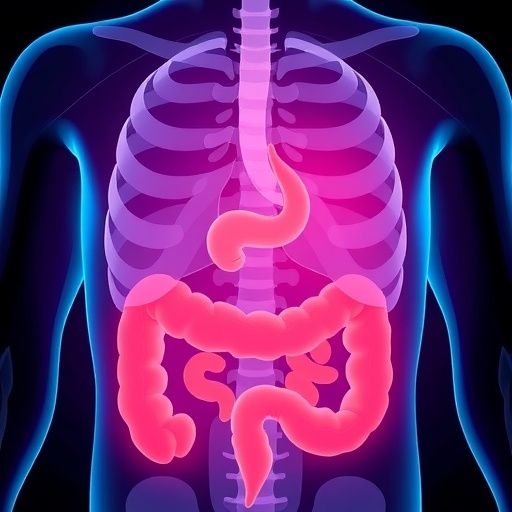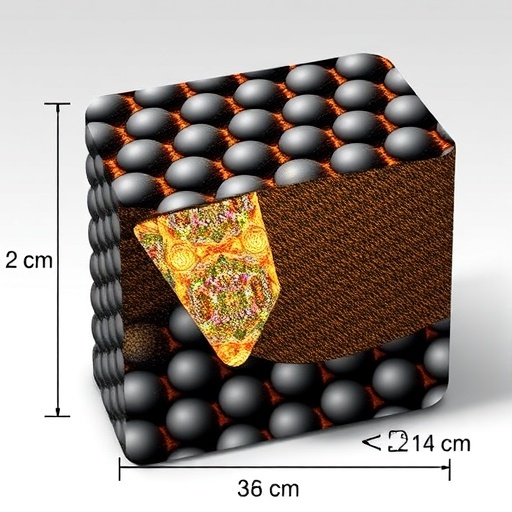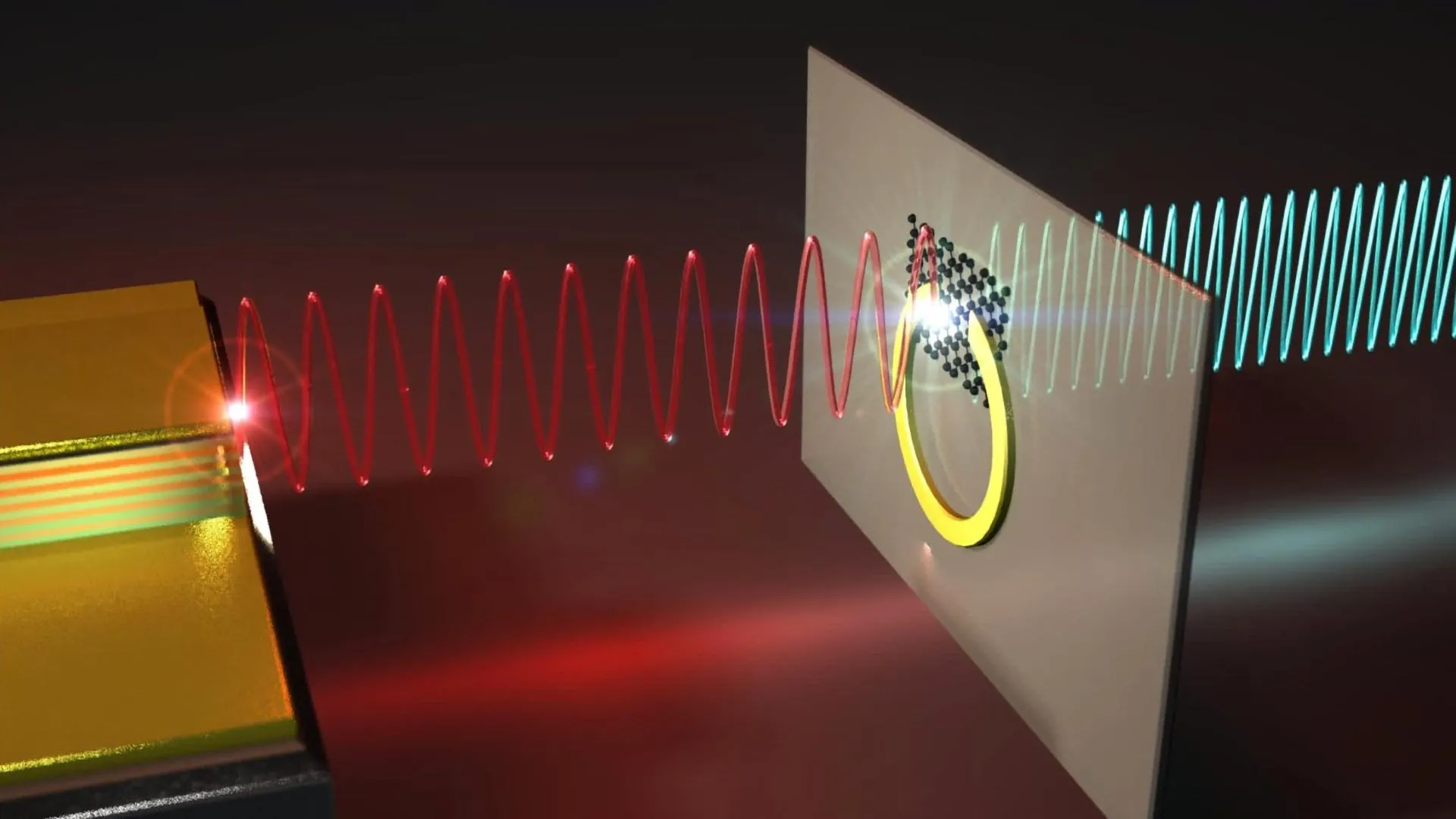PROTECT YOUR DNA WITH QUANTUM TECHNOLOGY
Orgo-Life the new way to the future Advertising by AdpathwayIn the realm of neonatal care, the transition from the Neonatal Intensive Care Unit (NICU) to home life is fraught with complexities that extend well beyond the immediate medical stabilization of the infant. This critical period, often referred to as the “post-NICU storm,” is characterized by a flurry of emotional, medical, and logistical challenges that families must navigate to ensure the ongoing health and development of their medically complex infants. Reflecting on their journey, the Kline family’s experiences shed light on the multifaceted nature of care required during this vulnerable time and underscore vital lessons that could transform post-NICU home care strategies on both clinical and socio-supportive fronts.
The NICU is a highly specialized environment designed to manage acute medical crises in newborns who are premature, have low birth weight, or present with congenital anomalies or other serious health conditions. However, surviving the NICU is merely the beginning of a prolonged caregiving odyssey. Once discharged, families face an overwhelming terrain filled with new responsibilities: managing intricate medication schedules, performing technologically aided therapies, conducting constant monitoring, and coordinating multidisciplinary medical follow-ups. The Kline family highlights that while the NICU team offers intensive support within its walls, the safety net loosens considerably once the infant returns home, necessitating a paradigm shift in caregiving dynamics.
One of the core challenges identified is the lack of adequate preparation and resources for families to manage care autonomously. Medical complexity often translates to symptoms and needs that can change rapidly, requiring quick responses in situations that can escalate to emergency status without timely intervention. The unpredictability of symptom evolution demands from caregivers a scientific understanding of their infant’s condition alongside practical mastery of technical skills such as ventilation management, feeding tube maintenance, and seizure recognition. The family’s narrative emphasizes that education and hands-on training must be tailored, iterative, and longitudinal rather than episodic to empower caregivers effectively.
Another critical aspect discussed is the psychological toll on families. The ongoing stress extends far beyond normal parental concerns, often culminating in chronic anxiety, sleep deprivation, and even symptoms reflective of post-traumatic stress disorder (PTSD). The invisible wounds of caregiving—especially when juxtaposed with feelings of isolation—compound the medical challenges. Here, the Kline family’s reflection illuminates the urgent need to integrate mental health resources as part of standard post-NICU care. Bridging social support with clinical follow-up can mitigate caregiver burnout and improve overall infant outcome by ensuring the family unit remains resilient and functional.
Technological advancements have revolutionized the way medically complex infants can be supported outside hospital settings. Remote monitoring devices, telehealth consultations, and automated medication dispensers provide layers of safety that were previously unattainable. However, these sophisticated tools introduce new challenges related to device reliability, data management, and caregiver technological literacy. The Kline family’s experience points to the necessity for seamless interfaces and comprehensive technical support that adapts to varying levels of caregiver competency and environmental factors. Moreover, iterative feedback loops between families and healthcare teams catalyze continuous refinement of these technologies, optimizing their utility in real-world scenarios.
Coordinated care emerges as a pivotal theme. Medically complex infants frequently require consistent involvement of multiple specialties, including pulmonology, neurology, nutrition, and developmental therapy. Fragmentation among providers can lead to conflicting advice, medication errors, and care discontinuities that jeopardize infant stability. The family’s story advocates for integrated care models anchored by a primary care coordinator who ensures communication channels remain open and synchronized. This approach also promotes anticipatory guidance and proactive management strategies that reduce emergency readmissions and improve long-term developmental trajectories.
From a scientific perspective, understanding the physiological underpinnings of medical complexity in neonates is crucial for both prevention and management post-discharge. Many complications stem from immature organ systems, aberrant inflammatory responses, or genetic and metabolic disorders. Research into biomarkers that predict deterioration risk, alongside innovations in personalized medicine, holds promise in tailoring interventions preemptively. The Kline family’s insight underscores the importance of ongoing participation by families in research initiatives, as their lived experiences provide invaluable context to clinical data and help identify gaps in current knowledge and care protocols.
Nutrition management represents another cornerstone of post-NICU care. Feeding difficulties are prevalent among medically complex infants, with many requiring enteral or parenteral nutrition due to compromised swallowing reflexes or gut motility. Achieving appropriate caloric intake is a delicate balance that affects growth, immune competence, and neurodevelopmental outcomes. The Kline family delineates the ongoing adjustments necessary to meet these needs, highlighting that nutrition plans must be dynamically adapted in response to real-time assessments and evolving health status, rather than rigid static prescriptions established at discharge.
Respiratory care continues to pose formidable challenges beyond the NICU. Infants often require supplemental oxygen, non-invasive ventilation, or even mechanical ventilation at home. Ensuring safe and effective respiratory support outside the hospital demands not only technical equipment but also stringent protocols for monitoring oxygen saturation, detecting apneas, and emergency response planning. Studies indicate that inadequate respiratory support post-discharge correlates with increased morbidity and rehospitalization rates. The family’s reflections advocate for comprehensive respiratory caregiver training combined with technological aids such as wearable sensors and caregiver alert systems to bridge these risks.
Developmental surveillance is yet another critical dimension inseparable from medical complexity. Early brain injury or developmental delays frequently accompany intensive neonatal interventions. Early intervention programs, physical therapy, occupational therapy, and speech-language pathology constitute essential components of home-based care aimed at optimizing neurodevelopmental outcomes. The Kline family’s accounts reveal the necessity for a holistic developmental framework that integrates therapeutic interventions with medical management, ensuring that the infant’s potential for functional independence is maximized while accommodating medical fragilities.
Effective communication between families and healthcare providers underpins all successful post-NICU endeavors. The Kline family emphasizes that transparent, compassionate dialogues foster trust and shared decision-making, crucial when managing complex care plans where uncertainty often prevails. Technologies such as teleconsultations and electronic health records accessible to families facilitate real-time feedback and adaptation of care strategies. However, the human element remains indispensable, as empathy and acknowledgment of family expertise catalyze collaboration and adherence to treatment plans.
Policy implications arising from post-NICU care challenges are substantial. Healthcare systems must recognize the prolonged nature of care needs and allocate resources accordingly. Insurance coverage, home health services, and community-based supports vary widely, often leaving medically complex infants and their families vulnerable. Advocacy for equitable access to comprehensive post-NICU services is essential to address disparities in outcomes. The Kline family’s narrative functions as a compelling call to action for policymakers to institutionalize support structures that encompass medical, psychological, and social domains.
Future research must also pivot towards longitudinal outcomes to capture the holistic impact of post-NICU care practices. Survival rates have improved considerably; however, quality of life and functional status remain paramount metrics. The incorporation of family-centered outcome measures, coupled with advancements in precision medicine and care coordination models, will propel the field forward. The Kline family’s experiences provide a poignant reminder that every statistic reflects a unique human journey fraught with profound challenges and triumphs.
Ultimately, the post-NICU period demands a synergistic approach that transcends traditional medical boundaries. The integration of family insights, technological innovations, interdisciplinary expertise, and policy reform will be instrumental in taming the “post-NICU storm.” The Kline family’s story is not merely a case study but a narrative beacon illuminating pathways for future care paradigms that honor the complexity of these fragile lives while empowering those who care for them.
In reflecting on their intimate journey, the Kline family eloquently encapsulates the essence of resilience, adaptability, and hope that defines caring for medically complex infants beyond the NICU walls. Their reflections resonate deeply within the medical community and beyond, urging a reconfiguration of support systems to foster not just survival but thriving in the most vulnerable of beginnings. As pediatric research and clinical practice evolve, embracing these lessons will be pivotal in ensuring that the post-NICU storm becomes an era marked by strength, connectivity, and transformative healing.
Subject of Research: Family experiences and clinical challenges in caring for medically complex infants post-NICU.
Article Title: Family reflections: surviving the post-NICU storm: our challenges and learnings caring for a medically complex infant.
Article References:
Kline, R. Family reflections: surviving the post-NICU storm: our challenges and learnings caring for a medically complex infant. Pediatr Res (2025). https://doi.org/10.1038/s41390-025-04515-x
Image Credits: AI Generated
Tags: caregiving odyssey after NICUchallenges of transitioning from NICU to homeemotional support for NICU familieshome care strategies for NICU graduateslessons from NICU familiesmanaging medical complexities at homemedication management for medically complex childrenmultidisciplinary follow-up care for infantsnavigating the post-NICU stormpost-NICU care for complex infantssupport networks for families of complex infantstechnologically aided therapies for infants


 16 hours ago
7
16 hours ago
7





















 English (US) ·
English (US) ·  French (CA) ·
French (CA) ·